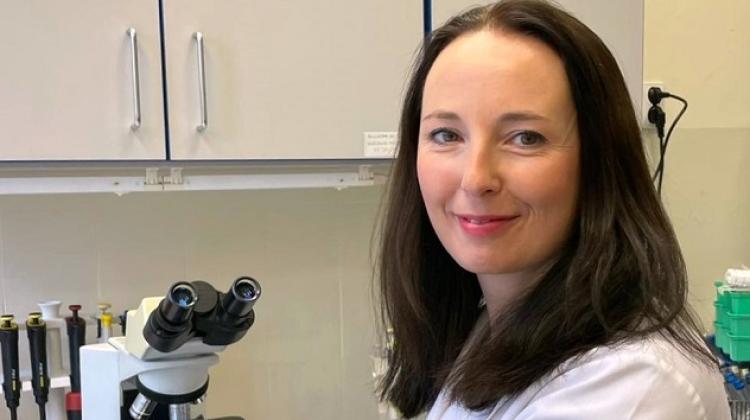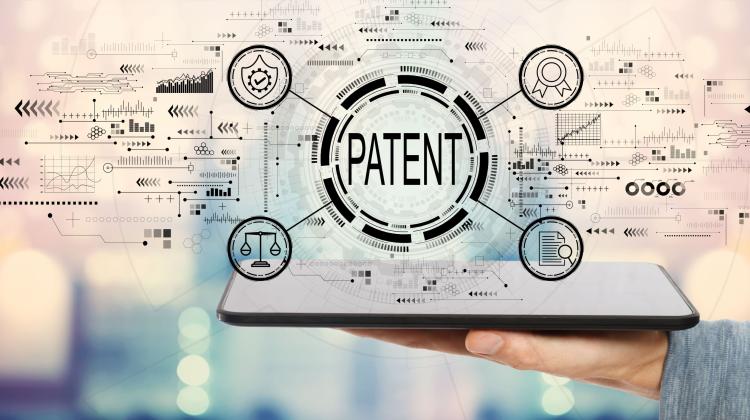Prof. Wiak: 5G technology is a civilization challenge for Poland and Europe
 Photo: Fotolia
Photo: Fotolia
Radical increase of data transfer speed, development of smart city, autonomous vehicles or applications of IT solutions in the area of public health - all this will be possible with the introduction of the new 5G technology.
According to the Rector of Lodz University of Technology, Prof. Sławomir Wiak, 5G technology is a civilization challenge not only for Poland, but also for the entire EU and Europe. In the context of technological challenges, in the case of our country, its introduction will be possible in 2025 - he added.
"This is a challenge from the point of view of improving the comfort of life of all citizens. We are talking about modern technologies that significantly accelerate communication. Thanks to this acceleration, we can manage large data sets, which is important for business, but also for everyone individually. It will significantly accelerate the activity of companies and institutions" - emphasized the expert.
According to specialists, 5G technology will enable the increase of data transfer speed from 300 Mb/s to 10 Gb and possibly even 100 Gb/s, or allow to reduce data transmission delays to a few milliseconds. It is expected to be resistant to performance dips caused by a large number of users.
In practice, this means a radical change in the speed of communication in large groups. "Today, the challenge of civilization is the growing amount of data in various formats, so it is important to manage these data in various formats in an orderly manner" - said Prof. Wiak, head of the ICT Central Poland Cluster. The cluster is an association of over 30 entities, including the largest IT companies. These include Comarch, Asseco and Ericsson, which has had the first demonstrations of 5G technology in cities including Tallinn, Stockholm and Kraków.
According to the Rector of Lodz University of Technology, the introduction of 5G technology will affect the functioning of modern metropolises - the development of smart cities. It will also enable managing the comfort of their residents\' lives.
The new technology will contribute, among other things, to the development of intelligent transport - and this includes not only the management of vehicle traffic, but also autonomous vehicles. According to Prof. Wiak, with current technologies the speed of signal transmission and the resulting autonomous vehicle response time are so slow that it is impossible to fully realize its autonomy.
"The idea is that in an online mode, i.e. faster data transmission, cars that do not have drivers should move smoothly, but also make decisions about overtaking. This type of prediction - that is, predicting the traffic, the opportunity to overtake, informing the vehicle ahead that we want to overtake it - is connected with a significant acceleration of data transmission. If we do not have that, we can not talk about autonomous vehicles. 5G technology will allow us to achieve it" - said the expert.
The 5G network will also enable the development of e-health or the use of IT solutions in the area of public health. "We can imagine - and that is the direction we are going - that we will build large knowledge databases concerning health and comfort of life, as well as aging processes, because it is natural, and preventing these processes for each citizen" - noted Prof. Wiak.
According to the expert both technologically (in terms of software), but also in terms of the construction of infrastructure, we are actually at the beginning of the road. In this technology, base stations will probably be located at a distance of about 200 meters from each other, and perhaps even a smaller distance, depending on the frequencies used.
"It will not be the same towers that we currently see for classic mobile telephony: on the scale of the country, it will be necessary to build several hundred thousand towers of other categories, at a standard distance of 200 meters. When it comes to space inside buildings, there will be micro-towers - so that you can communicate in every place" - said Prof. Wiak, who is a member of the Program Council for the Strategy "5G for Poland".
It is estimated that work on the 5G network will take a few more years. "In the context of technological challenges, we are talking about the year 2025" - added the Rector of Lodz University of Technology, who hopes that this technological revolution could be piloted in Łódź, including the Lodz University of Technology campus.
The Minister of Digital Affairs Anna Streżyńska announced that the Polish 5G network strategy project should be prepared by the end of the year. As part of work on the strategy, cities or city will be selected for the pilot of this system. Minister of Digital Affairs announced that she would like Łódź to take part in this pilot program.
The main directions of work on the 5G network were set in 2016 by the European Commission. The goal is that in 2025 all EU Member States should offer access to the 5G network in all urban areas and main communication routes. (PAP)
PAP - Science in Poland
szu/ zan/ kap/
tr. RL
Przed dodaniem komentarza prosimy o zapoznanie z Regulaminem forum serwisu Nauka w Polsce.















